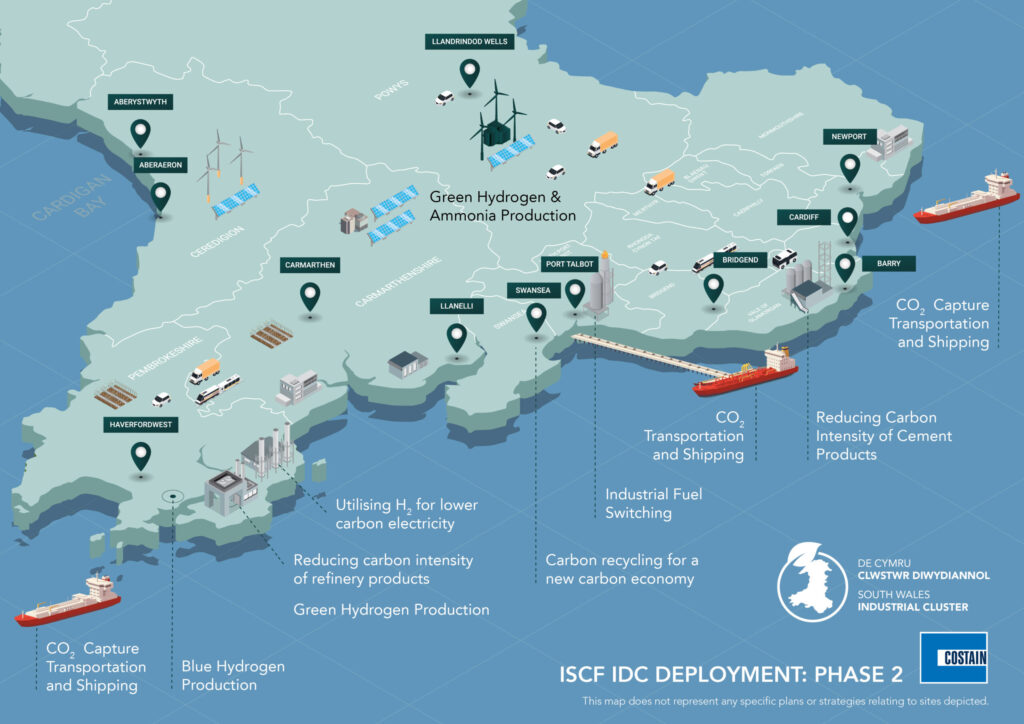What was the challenge?
The SWIC is made up of partners from an array of top organisations from the academic, industrial, public, and private sectors, all committed to reaching net zero carbon in South Wales through several ground-breaking projects. But the development of such pioneering approaches to reducing carbon emissions from heavy industry requires financial resources – a lot of it. As the only law firm to be a member of SWIC, we were part of the team applying for funding from the UK Government’s Innovation Agency – Innovate UK.
How did we help?
Our Construction, Energy and Projects team has been providing expert legal advice and support to the Deployment Project since it started, in April 2020.
At Phase 1 of the Deployment Project, we were one of nine project partners. Our team prepared a collaboration agreement to govern how the partners would work together to achieve the aims of the project.
This first phase lasted four months and ended in July 2020. It was intended to identify the risks which future Phases might face, and to develop a high-level mitigation strategy of how SWIC might overcome those issues.
Following the success of Phase 1, we were invited by Costain Oil, Gas & Process Limited (as the Project Lead) to apply, be part of, and advise on Phase 2. This second phase is a much longer project, spanning 3 years in total. Seventeen project partners are involved, including some of the original nine from Phase 1 as well as new additions.
Our construction, energy and projects lawyers have been working behind the scenes to prepare a second collaboration agreement, to ensure the partners work cohesively in this next important stage towards reaching net zero.
What was the outcome?
In March 2021, Innovate UK confirmed additional £20million funding for the second phase of the Deployment Project. This funding will enable SWIC to map what is needed to support South Wales in becoming a net zero carbon region by 2040.
Aligned with the UK Government’s 10-point plan for a green industrial revolution, the scheme will include investigations into:
- The production of hydrogen from both solar energy and imported LNG
- Cleaner electricity production using refuse-derived fuel and hydrogen-rich natural gas
- Carbon capture, usage and storage technologies along the South Wales Coast as well as the transportation and shipping of CO₂
- Large industry decarbonisation through fuel switching and process efficiencies and the production of cleaner transportation fuels
As this project is ongoing, we will continue to advise SWIC on the legal implications of decarbonisation proposals as they arise and develop.
To find out more about the work of our real estate team, please click here.




